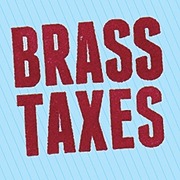Buying, Owning, and Selling a Home
Applying for a Mortgage
Buying a home is... a process! A big first step is applying for a mortgage. Below are a few tips and some information about the things most mortgage companies ask for.
Last updated on 13 Nov, 2025
Programs for First-Time Homebuyers (and Some People Buying Again...)
So right away, there's a thing that comes up a lot that's confusing. When you hear the phrase "first-time homebuyer" you would think, cool, that refers to people who have never owned a home before. But when it comes to federal and state government programs, that phrase generally means someone who didn't own a home they lived in for the past three years. There are also some carve-outs for people in particular circumstances.
That can sound kind of obtuse or even like an enormous loophole for people to take advantage of, but what's important there is that if you're buying your first home ever, you generally count as a first-time homebuyer. Additionally, there are some really important ways that the carve-outs help people in specific situations gain access to these programs, including single parents who have only owned property with a former spouse, people who owned homes that weren't attached to foundations (might include trailers/manufactured homes, some tiny homes, or people living in RVs), or people who owned a property that doesn't meet building codes and paying for compliance would cost the same as a new home. Here's a good article breaking down who qualifies.
One place a lot of lenders look to see if you can be classified as a first-time homebuyer is your last three years of taxes. They'll look to see if you've got mortgage interest, property taxes, or home sales in there. They'll also be looking at your income (more on that later). So make sure you're up to date on filing your past few years of taxes.
Programs to Help
Assistance programs for homebuyers most often exist in the form of preferential loans for first-time homebuyers (keeping that definition above in mind) and people who meet certain requirements based on their income, history, or the place where they're buying. Some programs (most often at the state and local level) provide grants to help you cover some of the cost of acquiring your new home.
The reality is that these programs can change from year to year and each one has pros and cons. There are too many programs to list every one, but below are some helpful links. And remember, your realtor is a great resource for figuring out what you qualify for. You may also be able to find a local agency that helps homebuyers learn the basics and access these programs (search for programs in your state).
Here are just a few places to start researching assistance programs:
Military veterans buying their first home can usually access VA Loans
Most homebuyers (first-time or not) can access FHA Loans
And if you're buying in a rural area (first-time or not), you may qualify for a USDA Loan
Asset & Income Statements
Most lenders or brokers are going to want you to account for your net worth and lay out all your assets for them. You're basically going to have to compile a bunch of statements that tell them how much money and/or property you've got. Below is a list of the kinds of things they're generally going to ask about:
Liquid assets: how much cash you've got, or money in bank account
Note: Your lender is going to be keeping a really close eye on your bank account until you close on your house, so make sure to keep things super stable there until after closing, otherwise you'll need to explain large changes (increases or decreases above $500-$100). In other words, hold off on buying furniture for the new place until after you close!
Non-liquid assets: Your possessions (cars, artwork, jewelry, etc.)
Gifts: You will need to prove that any large sums of money that recently showed up in your account came from a legitimate source and are not loans
Verification of Income:
If you've got only W-2 jobs (what they may call "employees"):
2 years of W-2s
2 years of tax returns (federal and state)
Your two most recent pay stubs
For freelancers (even if you mix that with W-2 jobs):
2 years of tax returns, including Schedule Cs (federal and state)
Usually they will add back in any depreciation and home office expenses
Profit and loss statements
Other documents that may be used to confirm your income:
Verification of employment from a tax preparer (we can provide this letter for you)
A business license
Letters from clients that confirm past work
The upshot of all of this is that it's going to take some time and a decent amount of paperwork. Do your research, and make sure you're getting good advice from real estate professionals and/or local groups that support new homebuyers. Please don't just trust that guy in the line at the post office who swears that he knows a guy who made millions last year in real estate without spending a dime... That guy is probably not your friend, unless he is, in which case, just get some other advice too.

